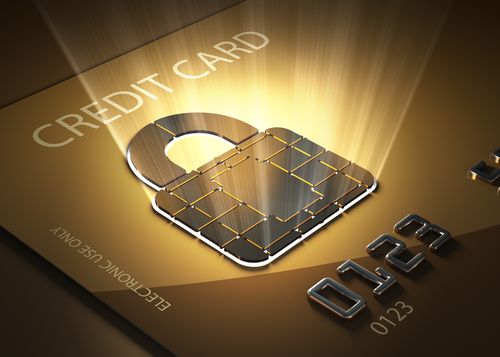Top Class Actions’s website and social media posts use affiliate links. If you make a purchase using such links, we may receive a commission, but it will not result in any additional charges to you. Please review our Affiliate Link Disclosure for more information.

Under federal law, all merchants with electronic transaction machines must follow these policies or face possible fines. This policy, known as the Fair and Accurate Credit Transactions Act (FACTA), was enacted to better protect the consumer from identity theft or credit card fraud, and to help decrease the liability merchants could face. Passed by Congress in 2003, FACTA mandates that all United States merchants follow these regulations to protect themselves and consumers from the over all damage of theft and fraud.
Overview of FACTA and Transaction Recommendations
However, experts state that the FACTA statutes for merchants is only half the battle against identity theft and fraud; consumers should educate themselves as much as possible about credit card fraud, identity theft, and the importance of their credit card receipts. By building up awareness for themselves, they can better prepare for any possible infraction against their bank account and livelihood. According to experts, there are seven crucial facts about credit or debit card receipts consumers should know:
- Receipts are secure but not completely safe: FACTA prevents merchants from showing any more than the last five digits of the credit card and also requires that the expiration date be omitted. Though FACTA policy decreases the risk of identity theft and credit card fraud, these credit card receipts should still be treated as confidential information that should be withheld safely or destroyed. There is an exclusion to this, as receipts from older cash registers are not included under FACTA. Most old-fashioned cash registers are the riskiest devices to use during transactions because they do not protect the credit card information.
- Receipt numbers are important: Receipts numbers, the numbers not a part of the credit card, are vital identifiable codes for the store to help track and confirm purchases. These receipt numbers can be a merchant ID number, approval code, or even a reference sequence from a specific register.
- Receipts of the store’s copy and customer’s copy are the same: While restaurants prefer they have the merchant copy receipt after the consumer has signed it, it is is inevitable that a consumer will walk off with the wrong credit card receipt occasionally. Luckily this is not a problem, because a tip line is on both copies and even if a credit card receipt is left unsigned, the meal will still be charged.
- Receipts should be signed with consumer’s real name: A signature is required on a credit card receipt to confirm the identity of the consumer; merchants do this by comparing the signature on the credit card receipt to the signature on the consumer’s driver’s license. Additionally, if a consumer uses a fake name, then the merchant has the right to void the transaction. Furthermore, if a fraudulent charge is made against the consumer, the consumer will need their signature to dispute it.
- Receipts and bills sometimes do not match: While checking to make sure that the bill and credit card receipts align is always a good security measure, consumers sometimes find a difference in numbers. However, customers should also keep in mind tips and mistakes cashiers could make during the transactions; consumers should always follow-up with the merchants to confirm or correct the amount charged to their card.
- Receipts should be preserved: For good record-keeping, or to get a refund or make a return, the credit card receipt should be kept to verify the purchase; experts recommend that credit card receipts should be kept for one to two years and then shredded.
- Receipts are not always needed: If the consumer does not plan on keeping the credit card receipt, they should not ask for it; better that it does not exist, rather than existing in the trash because it is not secure.
While these credit card receipt tips are helpful, they only help the consumer protect themselves to a certain point. It is also the civil responsibility of merchants to help protect consumers against identity theft by following FACTA; failure to do so may result in possible fines for the merchant.
Free FACTA Class Action Lawsuit Investigation
If you made one or more purchases and the retailer provided you with a receipt that contained more than the last five digits of your credit or debit card number or the expiration date, you may be eligible for a free class action lawsuit investigation and to pursue compensation for these FACTA violations.
ATTORNEY ADVERTISING
Top Class Actions is a Proud Member of the American Bar Association
LEGAL INFORMATION IS NOT LEGAL ADVICE
Top Class Actions Legal Statement
©2008 – 2024 Top Class Actions® LLC
Various Trademarks held by their respective owners
This website is not intended for viewing or usage by European Union citizens.














